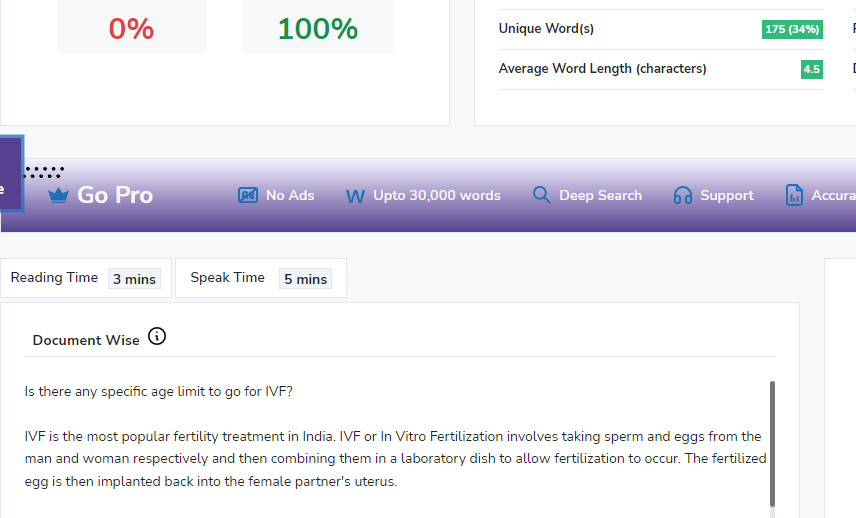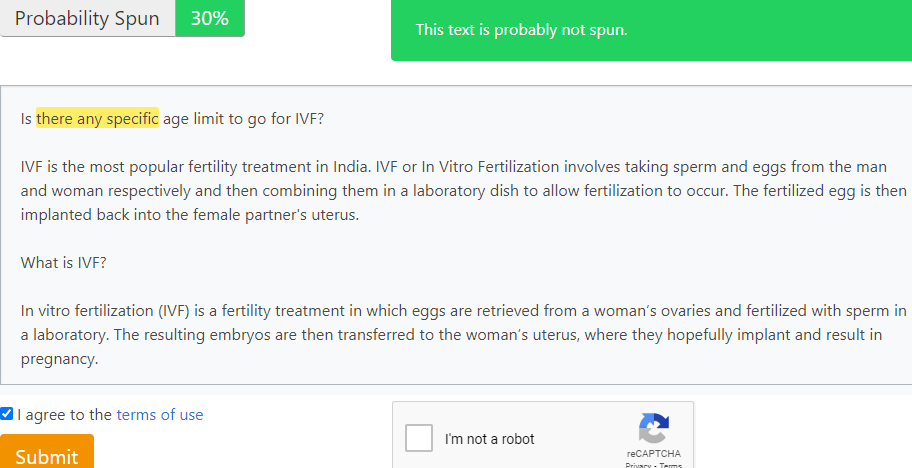
IVF is the most popular fertility treatment in India. IVF or In Vitro Fertilization involves taking sperm and eggs from the man and woman respectively and then combining them in a laboratory dish to allow fertilization to occur. The fertilized egg is then implanted back into the female partner’s uterus.
In vitro fertilization (IVF) is a fertility treatment in which eggs are retrieved from a woman’s ovaries and fertilized with sperm in a laboratory. The resulting embryos are then transferred to the woman’s uterus, where they hopefully implant and result in pregnancy.
IVF can be an option for couples who have been trying to conceive without success, as well as for women with certain medical conditions that make it difficult to get pregnant or carry a pregnancy to term.
There are many things to avoid during the process of in vitro fertilization or IVF. These include:
Additionally, it is important to follow your doctor’s instructions carefully and to avoid stress as much as possible.
In vitro fertilization (IVF) is a fertility treatment in which eggs are retrieved from the ovaries and fertilized with sperm in a laboratory. The resulting embryos are then transferred to the uterus with the hope of achieving a pregnancy.
IVF is a complex and costly procedure, and it’s not always successful. In fact, according to the American Society for Reproductive Medicine (ASRM), only about 40 percent of IVF cycles result in a live birth.
But for couples who have been struggling to conceive, IVF may offer their best or only chance of having a baby. Here’s a look at how the IVF process works.
According to the American Society for Reproductive Medicine (ASRM), the success rates of in vitro fertilization (IVF) vary based on a number of factors. These factors can include the age of the woman, the cause of infertility, and the number of embryos transferred.
The ASRM reports that, in general, women under the age of 35 have a 40-50% chance of achieving a successful pregnancy with IVF. For women aged 35-37, the success rate is about 32-39%. Women aged 38-40 have a 23-27% chance of success, and those over 40 have a 12-20% chance.
The cause of infertility can also affect the success rate of IVF. For example, if the woman has blocked fallopian tubes, her success rate will be lower than if she has unexplained infertility. Similarly, if the man has a low sperm count, the success rate will be lower than if there were no obvious fertility issues.
There’s no specific age limit to go for IVF, but as you get older, your chances of success diminish. If you’re under 35, you have about a 40% chance of success with IVF, but if you’re over 40, that drops to about a 10% chance. So, while there’s no hard and fast rule, the general advice is to try IVF sooner rather than later if you’re hoping to conceive.
No, there is no specific age limit to go for IVF. However, it is important to note that fertility declines with age. This means that women over the age of 35 may have a more difficult time conceiving using IVF. Additionally, the success rates for IVF are lower for women over the age of 40.
So, there you have it—an overview of the IVF process from start to finish. Although it may seem like a daunting and complicated process at first, with the help of a fertility specialist and some financial planning, IVF can be an option for growing your family. And remember, you are not alone—over 5 million babies have been born worldwide through IVF.

